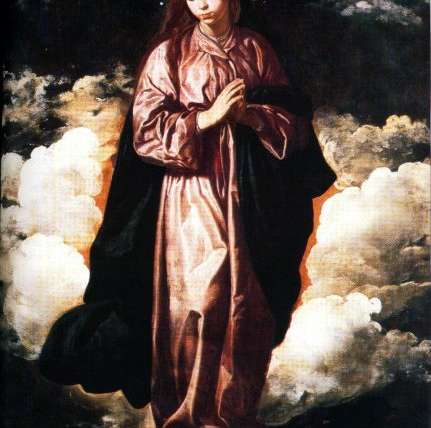Religious Reform in Switzerland
The Protestant Reformation
Religious Reform in Switzerland In the 16th century, a German monk named Martin Luther became increasingly dissatisfied with the actions and beliefs of the Catholic Church. At this time, Catholicism was the dominant religion. Most national churches were Catholic and reported to the Pope in Rome.
Catholic clergy issued indulgences to laypeople as a pardon for sins. Indulgences could be bought by paying the clergy member. Luther believed this led to insincerity in the laypeople and was an abuse of power. He believed the church held too much authority over its laypeople and that each person should rely on the Bible for guidance rather than clergy.
| Luther nailed his 95 theses to the door of a Wittenberg church. |
Luther, angry with the corruption in the church, wrote 95 theses regarding indulgences and nailed them to the door of the Castle Church in Wittenberg. Luther’s actions and thoughts spread through Germany and began a movement that nearly covered Europe. Christians, who would soon be called Protestants, began splitting from Catholicism in favor of having more authority over their religion, rather than surrendering it to the Catholic clergy.
The Reformation Spreads to Switzerland
Many people in Switzerland were also dissatisfied with corruption in the church. The selling of indulgences led to wealth that contributed to demoralization in the clergy. Official duties were delegated to others who had not been educated. As the ideals of Luther spread, the unhappy laypeople of Switzerland joined in the demand for reform and discipline. At the forefront of this movement was Huldrych Zwingli.
Zwingli
Zwingli agreed with Luther that the Catholic Church emphasized the administration of sacraments, which were rituals that would affect God’s grace on a person. However, while Luther said that church tradition was not overtly contrary to the Bible, Zwingli said that every ritual that was not mentioned specifically in the Bible should be abolished. This included five of the seven sacraments currently practiced by Catholics. Zwingli upheld the sacraments of baptism and the Eucharist.
Luther and Zwingli also disagreed on the interpretation of the Eucharist (or communion). They both agreed the sacrament should be practiced and disagreed with the Catholic idea that the bread and wine turned into Jesus’ blood and body during the ritual. Luther believed that Jesus was physically present in all things and, therefore, already present in the bread and wine used. Zwingli, on the other hand, believed this was practiced simply as a memorial and that physical objects could not hold the presence of a holy being like Jesus.
| The beliefs of Zwingli grew popular in cities like Basel and Zurich. |
Zwingli and Luther did both agree the sacrament of baptism was necessary. Zwingli believed baptism was needed in infancy and only needed once for salvation. This was in conflict with a group called the Anabaptists. Anabaptists believed children should not be baptized and allowed adults who had been baptized as children to be re-baptized. Zwingli believed the claims of the Anabaptists had no scriptural basis and that they were adding to the scripture. Zwingli held that baptism was a covenant with God rather than a promise to live without sin, as the Anabaptists believed.
Zwingli also believed that the church and the state should govern together because all were under the rule of one god. He believed the government could help a person live honorably but could not make a person righteous in God’s eyes. This was why, according to Zwingli, the church is needed along with the government.
Zwingli’s views were popularly accepted by many in places like Zurich and Basel, but some places remained predominantly Catholic. The disagreement between these areas would eventually lead to civil war. Zwingli died on the battlefield in 1531.
Calvin
Another leader in the reformation movement in Switzerland was a French jurist named John Calvin. He was banished from Paris because of his beliefs. He travelled to Geneva, where he met other Protestant leaders. Calvin was responsible for spreading another form of Protestantism called Calvinism.
Calvin strongly believed in predestination, which is the idea that God has already determined the eternal fate of each person before birth. Calvin believed the actions people took had no weight on whether they would go to heaven or hell. This eliminated the need for Catholic practices such as confession and performing sacraments. Despite this belief, Calvin did support the act of infant baptism as a covenant with God.

| Calvinism was popular in Switzerland during the Reformation. |
Calvin also supported the practice of the Eucharist. However, his beliefs were somewhere between those of Luther and Zwingli. Rather than Jesus’ body and blood being physically present during the Eucharist or being completely absent, he believed Jesus was spiritually present in these elements – meaning when a person received the physical bread, that person was receiving the spiritual body of Christ.
Calvinism became popular in Switzerland. Calvin created a strict system of discipline and enforced it heavily. Church discipline was maintained by the consistory, which was a council of preachers and laypeople elected in each district. The consistory’s power was limited to church-related punishment. For example, serious offenders could be excommunicated from the church. However, the council was able to suggest civil punishments to the city’s government. The suggestions were often followed.
Lesson Summary
The Protestant Reformation was born out of a growing distaste for corruption in the Catholic Church. Many Europeans joined the movement. In Switzerland, Zwingli became a huge advocate for the spread of Protestantism, although he disagreed with some of Luther’s beliefs. As more Swiss people adopted Protestant practices, Calvin’s ideas also became popular with many.



